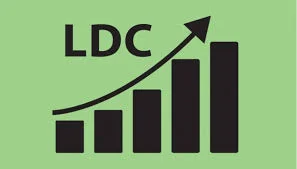Kamruzzaman Bablu :
The overall economic condition of Bangladesh is facing significant challenges, with business leaders, including those from BGMEA and BKMEA – the major contributors to foreign currency earnings through exports – expressing concerns over the country’s readiness to graduate from the Least Developed Country (LDC) status by November 2026.
Many leaders argue that such a move under current circumstances could be detrimental, terming it a “suicidal step.”
Recent government white papers have revealed discrepancies in various economic indicators, including growth, inflation, exports, revenue, and expenditure.
Bangladesh appears to have entered the “middle-income trap,” a phase where economic growth stagnates despite initial rapid development. Graduation from LDC status would mean relinquishing a host of preferences and privileges currently enjoyed by the country.
The white papers also claim that Bangladesh’s economic growth has been overstated since 1995, raising concerns about the effectiveness of LDC graduation based on potentially inflated data. This issue has particularly alarmed the ready-made garments (RMG) sector, which accounts for over four-fifths of the country’s total export earnings.
A BGMEA source stated that the RMG sector would face the most severe consequences of LDC graduation, given the high tariffs imposed on Bangladeshi apparel in key markets.
For example, Bangladeshi garments face average tariffs of 12 per cent in the EU and 16-18 per cent in Canada.
This erosion of trade preferences could significantly impact the sector’s export competitiveness.
Additionally, under the WTO Agreement on Subsidies and Countervailing Measures (SCM), Bangladesh will lose the ability to provide export incentives and subsidies to its exporters. These incentives are currently a key component of the RMG industry’s competitiveness and profitability.
Md Hatem, President of the Bangladesh Knitwear Manufacturers and Exporters Association (BKMEA), remarked: “The policies implemented under the guise of development have stifled us.
Premature LDC graduation at this juncture would be disastrous. We urge the government to defer this process.
Our export growth is already on a downward trend due to mismanagement by the previous administration, and our costs are rising as we increasingly rely on imported raw materials. Immediate action is required to postpone this transition.”
Shovon Islam, Managing Director of Sparrow Group of Industries, added: “The premature graduation of Bangladesh from LDC status raises serious concerns. The data supporting this graduation, particularly regarding per capita income, human resources, and economic stability, appear inflated.
This transition could lead to significant economic instability as we lose duty-free market access and international support. Sectors like RMG, pharmaceuticals, and agriculture are particularly vulnerable to the adverse impacts of LDC graduation.”
Mohammed Zakir Hossain, Secretary General of the Bangladesh Garment Buying House Association (BGBA) and Chairman of Tex Solution Consulting Bangladesh Ltd., highlighted the additional production costs posed by the withdrawal of Generalised System of Preferences (GSP) facilities in the EU, Bangladesh’s primary export market.
“For instance, a product that currently costs $10 to produce will cost $11.70 after losing the GSP benefits, which will hinder our ability to maintain competitive pricing and meet export targets,” he said.
The business community has urged the government to act swiftly, emphasising the need for better preparation to address the challenges posed by LDC graduation, as the deadline of November 2026 approaches rapidly.




